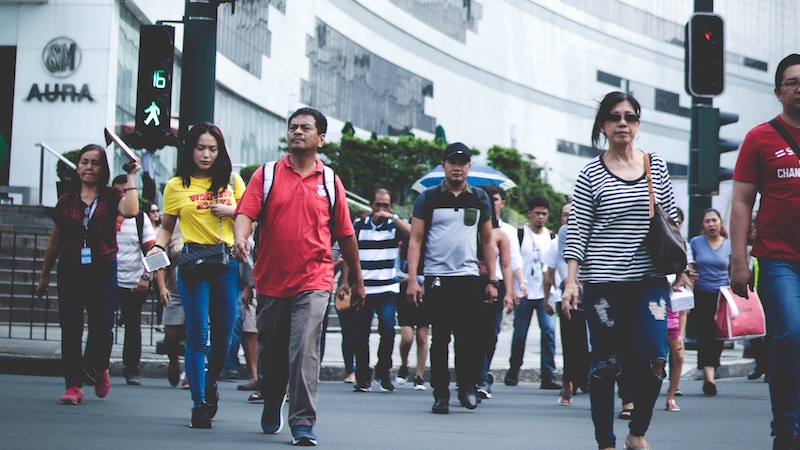在美中戰略競爭與全球經濟分裂加劇的背景下,台灣面臨...


亞太堅韌研究基金會董事長
Nonresident Senior Fellow, Brookings Institution

International Strategy Forum - Asia Fellow, Schmidt Futures

Professor and Director, Ph.D. and Master Program of Global Health and Health Security, Taipei Medical University

Ph.D. Scholar and Ida M. Green Fellow, Massachusetts Institute of Technology

Honorary Enterprise Professor, University of Melbourne

Professor, International Studies Program, Graduate School of Asia-Pacific Studies at Waseda University
The Democracy in Asia project was launched by the Brookings Foreign Policy program in 2020 to explore the state of democracy in the Indo-Pacific region and examine the role and influence of democracy in the Asian context. The first phase of the project (2020-2021) resulted in a collection of geographically and thematically-focused policy briefs examining the health of democratic governance in Asia and identified several common challenges impacting the successes and health of democracy. In the second phase of the project (2021-2022), Brookings scholars and outside experts focused on four of these challenges: corruption, disinformation, inequality, and public health. Syaru Shirley Lin of the Center for Asia-Pacific Resilience and Innovation (CAPRI) led the CAPRI research team to organize the public health working group.
The resulting edited volume Democracy in Asia launched on December 14, 2022 highlights both the significant progress and remaining work to be done in shoring up democratic performance in Asia. CAPRI’s chapter “Democracy and Public Health in Asia” and preface by Syaru Shirley Lin summarizes the findings of the public health working group on technology use, data acquisition, and democratic governance during the COVID-19 pandemic.
Since 2020, the COVID-19 pandemic has been a stress test for national and international institutions. In particular, governments have been forced to reckon with how effectively their health, economic, and political systems can withstand a crisis and manage its consequences. In 2020, with public health thrust to the forefront of daily discussion and policymaking, many democracies had to rapidly develop and deploy policies that could both protect the health of the population and uphold individual freedoms. Some democratic societies in the Asia-Pacific region were initially successful in controlling the spread of COVID-19, especially in 2020 and 2021. In these highly digitalized societies, governments relied on data and technology to inform their pandemic-related policies. However, data acquisition, movement restrictions, vaccine requirements, and other policies aimed at controlling the pandemic gradually came into conflict with the democratic values and norms of personal privacy and freedom. While some of these democracies garnered global attention for their successful initial responses to the pandemic, questions about how well they have protected democratic values have remained, as well as questions about the sustainability of those responses over time.
In this third year of the COVID-19 pandemic, there is an opportunity to evaluate how societies can strengthen the resilience of the region’s democratic and health systems to this crisis and future ones by adapting, evolving, and innovating. In leading the public health working group for this phase of the Brookings Democracy in Asia project, the Center for Asia-Pacific Resilience and Innovation (CAPRI) considered myriad issues in public health that became evident during the COVID-19 pandemic. Given the many ways in which technology and data have been used in the pandemic, the working group sought to examine how Asia-Pacific democracies have harnessed the power of technology and innovation to protect public health while still giving priority to personal privacy. Drawing on its network of regional specialists, CAPRI recruited five scholars to offer their insights on the pandemic responses in Australia, India, Japan, South Korea, and Taiwan. The authors’ diverse backgrounds resulted in a group of papers with different perspectives. Three papers (on India, South Korea, and Taiwan) focused on technology use and data privacy, and two papers (on Australia and Japan) offered broader case studies on the countries’ pandemic responses, including the employment of technology and innovative public policy.
The three papers focusing on data and technology use during the pandemic also addressed their common topic from different perspectives — from the international to the individual levels. On South Korea, political economist June Park reflected on the reality that domestic data governance supersedes international frameworks regulating how personal data are used in research, commercial services, and public health surveillance. Given that data governance is unlikely to become standardized internationally, Park provided an example of how South Korea has defined its own rules for data governance. During the pandemic, South Korea revised its three major data regulations with the help of key stakeholders to strike a balance between data protection for individual citizens and data utilization in the public and commercial spheres. Through data pseudonymization, a clearer legal framework, increased liability for data controllers, and clarification of what constitutes “personal information,” the revised regulations attempt to protect individual privacy while facilitating the use of big data in pandemic research.
On Taiwan, Feng-Jen Jean Tsai, a lawyer and an expert in epidemic prevention and democratic governance at Taipei Medical University, examined data and technology use in the national-level pandemic response. Digital technologies and big data contributed to Taiwan’s early success in controlling the spread of COVID-19. Multiple government databases, including those of the National Health Insurance system and the National Immigration Agency, were integrated to enable the government to trace, predict, and control the spread of COVID-19. However, the constitutionality of digital contact tracing and health data use is being debated because of concerns over individual privacy. Although, after the 2003 SARS outbreak, Taiwan developed a sound legal framework for government action in a health crisis, it did not govern how technology and data use should be applied to protect public health in prospective pandemics. Tsai argues that legal preparedness is crucial for governments to act effectively and maintain public trust in future crises.
Moving from the supranational perspective of Park and the national perspective of Tsai, Radhika Radhakrishnan, who specializes in gender justice and digital rights, examined the impact of digital health surveillance at the community and individual levels in India. Using a feminist approach to examine contact tracing and quarantine management apps in India during the pandemic, Radhakrishnan argues that people’s data must be viewed as an extension of their bodies in order to protect their personal agency, dignity, and safety. During the pandemic, people’s digital information — such as their location data, vaccination status, or recorded exposure to COVID-19 — has shaped their physical realities, such as their freedom of movement or access to public services.
Without an established legal framework for data governance, India requires an approach centered on the entities that generate data to clearly define lawful surveillance and prevent stigmatization of and violence toward marginalized communities.
The two case studies on Australia’s and Japan’s pandemic responses took a broader approach to the topic of public health and democratic governance. The authors note that both countries enjoy a reasonable level of public trust in the government and compliance with pandemic control policies. However, health economist Stephen Duckett of the Grattan Institute argues that the Australian government has struggled with shortcomings in transparency, accountability, and equity in its pandemic response, despite the level of trust and the successful stemming of deaths in 2020 and 2021. Different priorities and values held by the federal and state governments in Australia led to inadequate policy coordination and poor data collection. As a result of these failures, the governments could not effectively meet the communities’ needs; they were unaware of how pandemic policies affected marginalized and vulnerable groups.
Yasushi Katsuma, an expert and government consultant in global health and governance at Waseda University, reviewed Japan’s strategy of adopting nonpharmaceutical interventions (NPIs) as part of a “living with COVID” policy. Katsuma examined Japan’s NPIs, such as restricting international travel, adopting new technology, limiting mass gatherings, and influencing personal behavior. He also evaluated Japan’s successful top-down approach to pandemic control through public health campaigns and the use of technologies to perform contact tracing, educate the public, and adapt to a new reality of living with COVID-19. The government has relied on citizens’ willingness to change their own behavior (for example, through avoiding the “Three Cs” of closed spaces, crowded places, and close contact and producing educational videos using the Fugaku supercomputer. Other NPIs have included encouraging the use of software such as COCOA to confirm contact with people who have tested positive for COVID-19 and replacing conventional air conditioners with ones that let in fresh outside air. However, the case study shows how the Japan government has been careful not to implement excessive or arbitrary NPIs to ensure the protection of individual rights as appropriate in a democracy.
A few common themes emerged in the papers’ policy recommendations that are crucial for effective democratic governance and resilience in the Asia-Pacific. First, several papers identify ways to enhance public trust, accountability, and transparency. Trust in government is a crucial factor in the success or failure of policy implementation in democracies. Taiwan and Australia’s experiences during the pandemic illustrate that constant transparency around the data collected and decisions made is essential for ensuring the public’s acceptance of public health policies. Transparency and trust-building also require engagement with the people. As Tsai observed, Taiwan’s use of digital platforms in collaboration with civil society helped sustain public compliance with pandemic control measures. Similarly, as Radhakrishnan observed in India, Kerala state’s employment of population control measures in coordination with public services, such as the distribution of food in community kitchens, helped increase public compliance.
However, public trust in government cannot be sustained without policy success and public accountability. Duckett identified the Australian government’s efforts to keep decision-making power vested in elected officials as a measure that can ensure public accountability. Because trust in the government can ebb and flow, democratic tools need to be deployed to maintain it throughout a crisis, and citizens must feel assured that their rights will be protected. In Japan, where public trust in the government is high, Katsuma identified the ways in which the government encouraged behavior changes through public educational campaigns without enacting strict lockdowns or movement restrictions.
Second, several papers show how the pandemic has affected societies unequally, with lower-income and marginalized groups experiencing worse health outcomes. In Australia, lower-income communities have recorded much higher death tolls from COVID-19 than have wealthier communities. In India, health surveillance measures that have involved mobile phone apps or location tracking have resulted in members of marginalized communities being stigmatized or denied access to public services. The papers’ authors note that addressing these challenges of inequality requires the integration of complete information on marginalized communities as well as the engagement of these communities in policy design and implementation[1].
Based on the Australian experience, Duckett identified a need for better information to be collected and shared publicly on how well public health measures are reaching underserved communities. He also identified a need for increased engagement with leaders who can advocate for their communities and facilitate policy implementation locally. In the Indian context, Radhakrishnan recommends that to protect marginalized communities from violence or stigma, COVID-19 surveillance apps and contact tracing measures should collect only the data necessary to contain disease spread. In societies where the effects of the pandemic and public health measures have been uneven, marginalized groups should be at the forefront of policy analysis as response frameworks are developed.
Finally, some papers reflect on how a crisis forces democracies to rapidly reorient and prioritize their values to create a legal framework for policy responses. The debates on data privacy in India, South Korea, and Taiwan reveal how governments’ collection and use of data to protect public health might conflict with values such as personal privacy and freedom of movement. Effective policies in a public health crisis must balance the “freedoms to” speak, gather, and organize with the “freedoms from” disease, want, and poverty. The pandemic has shown that the rights and freedoms of the individual may be at odds with the policy solutions that will save the most lives. The balance struck among these competing values will involve difficult and possibly contentious decisions that may differ from country to country and region to region. The increasing differences among the systems of data governance in China, the European Union, and the United States — differences that have widened over the course of the pandemic — illustrate the importance of this development.
Engaging major stakeholders, particularly the public, in crafting legal structures that define the government’s authority and the restriction or protection of personal liberties is essential. While doing so before an emergency is ideal for reducing the risks and uncertainty associated with invoking emergency powers, the five societies examined have been looking for solutions during the pandemic. For example, although, after SARS, Taiwan established a legal framework for responding to future pandemics, it did not clarify the government’s authority to collect personal data, which has caused controversy in the current pandemic. In the aforementioned case of Australia, to ensure public accountability, the state of Victoria transferred decision-making power in public health emergencies from the unelected chief health officer to the elected state premier. In the midst of the pandemic, South Korea amended its data privacy laws in anticipation of the new roles technology and big data would have in its economy. Democracies must invest the time now to improve their legal frameworks to better respond to public health emergencies in the future.
The COVID-19 pandemic has demonstrated how public health is connected to many other challenges facing democratic governance.
Thus, interdisciplinary approaches are needed to improve societal resilience. While the five papers highlight different aspects of fighting the pandemic — from data governance to public campaigns for behavior change — their policy recommendations have common themes. These include the need to (1) maintain public trust through accountability and transparency, (2) consider how to prioritize values such as equity and privacy, and (3) ensure legal preparedness for the future. Innovative policies, new technologies, and adaptive institutions will all be essential in helping societies become more resilient in the face of increasingly common global challenges — be they pandemics, economic crises, or climate emergencies.
The authors thank the members of CAPRI for their valuable contributions to the five papers and this preface.
[1] On the differences between data governance in China and in other Asia-Pacific countries, see Michael P. Goodman, “Governing Data in the Asia-Pacific,” (Washington, DC: Center for Strategic and International Studies, April 21, 2021), https://www.csis.org/analysis/governing-data-asia-pacific; Aynne Kokas, Trafficking Data: How China Is Winning the Battle for Digital Sovereignty (New York, Oxford University Press, 2022).
This policy paper discuss...